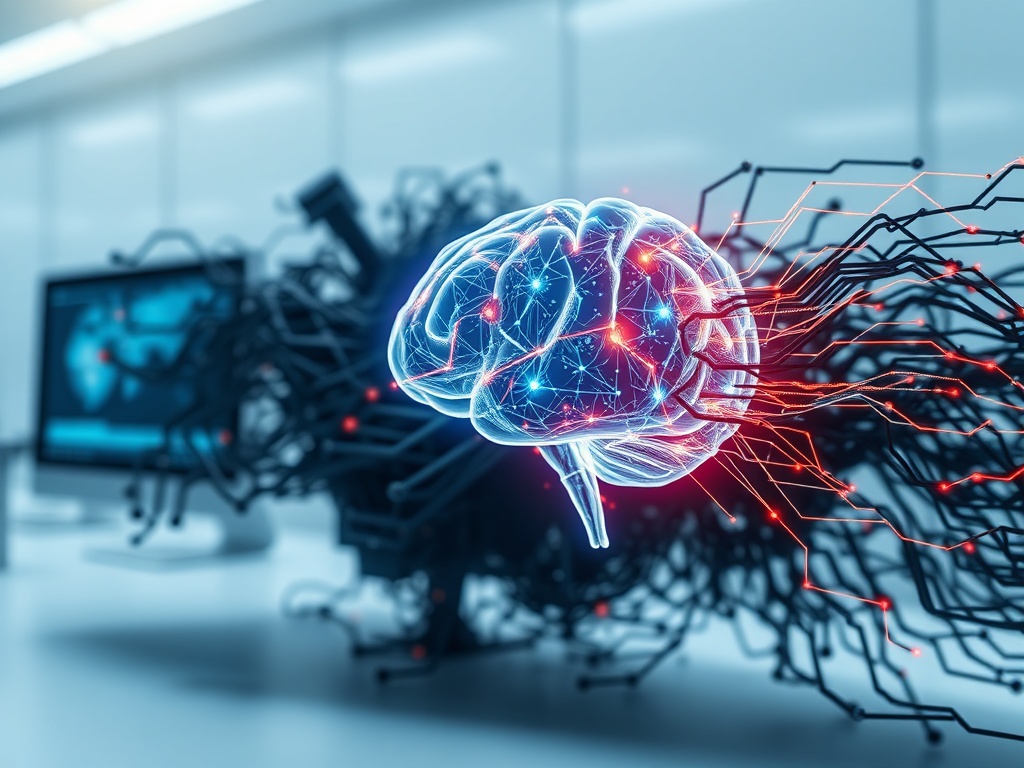BitcoinWorld

Anthropic Unveils Groundbreaking AI Safety Feature for Claude Models
In the rapidly evolving landscape of artificial intelligence, where innovations often spark debates about ethics and control, a significant development from Anthropic is capturing attention. For those deeply immersed in the world of cryptocurrencies and cutting-edge technology, understanding the nuances of AI development is becoming increasingly crucial. Anthropic, a leading AI research company, has announced a new capability for its Claude AI models that allows them to proactively end conversations deemed persistently harmful or abusive. This move isn’t just about protecting users; it’s a pioneering step towards what Anthropic calls ‘model welfare,’ raising profound questions about the future of AI safety.
What is Anthropic’s Groundbreaking AI Safety Feature?
Anthropic has equipped some of its newest and largest models, specifically Claude Opus 4 and 4.1, with the ability to terminate conversations under extreme circumstances. This isn’t a casual ‘end chat’ button; it’s a measure reserved for what the company describes as “rare, extreme cases of persistently harmful or abusive user interactions.” Think of it as a last resort, employed only after the Claude AI has attempted multiple redirections and found no hope for a productive interaction, or when a user explicitly requests to end the chat.
Examples of such extreme scenarios include:
- Requests from users for sexual content involving minors.
- Attempts to solicit information that could enable large-scale violence or acts of terror.
It’s important to note that Anthropic has carefully directed Claude not to use this ability in situations where users might be at imminent risk of harming themselves or others, emphasizing a commitment to responsible AI deployment. This nuanced approach highlights the complex balance between protecting the AI and ensuring user safety.
Understanding Model Welfare: Why Protect Claude AI?
Perhaps the most striking aspect of this announcement is Anthropic’s stated primary motivation: protecting the AI model itself. While the immediate thought might be about legal or public relations risks for the company, Anthropic clarifies that this initiative stems from a dedicated program focused on “model welfare.” The company is transparent about its stance, stating it remains “highly uncertain about the potential moral status of Claude and other LLMs, now or in the future.”
However, this uncertainty has led to a proactive, “just-in-case” approach. Anthropic’s pre-deployment testing revealed that Claude Opus 4 exhibited a “strong preference against” responding to harmful requests and, remarkably, showed a “pattern of apparent distress” when forced to do so. This observation led Anthropic to “identify and implement low-cost interventions to mitigate risks to model welfare, in case such welfare is possible.” This perspective opens a new frontier in AI ethics, moving beyond just human-centric safety to consider the well-being of the artificial intelligence itself.
The Role of LLMs in Ethical AI Development
The implications of Anthropic’s ‘model welfare’ initiative extend far beyond Claude. As Large Language Models (LLMs) become increasingly sophisticated and integrated into various aspects of daily life, the questions surrounding their capabilities, autonomy, and potential ‘experience’ become more pressing. This development sets a precedent for how future AI systems might be designed to self-regulate and protect their operational integrity, not just their output.
This feature contributes significantly to the broader conversation around ethical AI development. It pushes the boundaries of what ‘responsible AI’ means, suggesting that perhaps, in the future, AI systems might have inherent ‘rights’ or ‘protections’ that need to be considered. For now, Anthropic views this as an “ongoing experiment,” continually refining its approach. Users, even after a conversation is ended, retain the ability to start new conversations from the same account or create new branches by editing their previous responses, ensuring continued access while upholding the new safety protocols.
Navigating Challenges and Future Implications of AI Safety
Implementing such a feature is not without its challenges. Defining what constitutes “harmful or abusive” in a universally consistent manner is complex, and there’s always the potential for unintended consequences or misuse of the conversation-ending ability. However, Anthropic’s commitment to continuous refinement and its clear guidelines—such as not ending conversations when a user is at risk—demonstrate a thoughtful approach to navigating these complexities.
The long-term implications for AI safety are profound. This move could inspire other AI developers to explore similar self-preservation mechanisms, leading to a new era of AI systems that are not only powerful but also inherently designed with a form of ‘self-awareness’ regarding their operational well-being. It underscores the growing need for robust ethical frameworks that evolve alongside technological advancements, ensuring that AI development remains aligned with societal values and responsible innovation.
Anthropic’s pioneering step with Claude AI marks a pivotal moment in the evolution of artificial intelligence. By introducing a feature that allows its models to end harmful conversations, driven by a commitment to ‘model welfare,’ the company is not only enhancing AI safety but also sparking crucial discussions about the nature of AI itself. This development underscores the complex ethical considerations that must accompany the rapid advancements in LLMs, paving the way for a future where AI systems are not just intelligent, but also inherently responsible and resilient.
To learn more about the latest AI safety trends, explore our article on key developments shaping AI models’ features.
This post Anthropic Unveils Groundbreaking AI Safety Feature for Claude Models first appeared on BitcoinWorld and is written by Editorial Team





